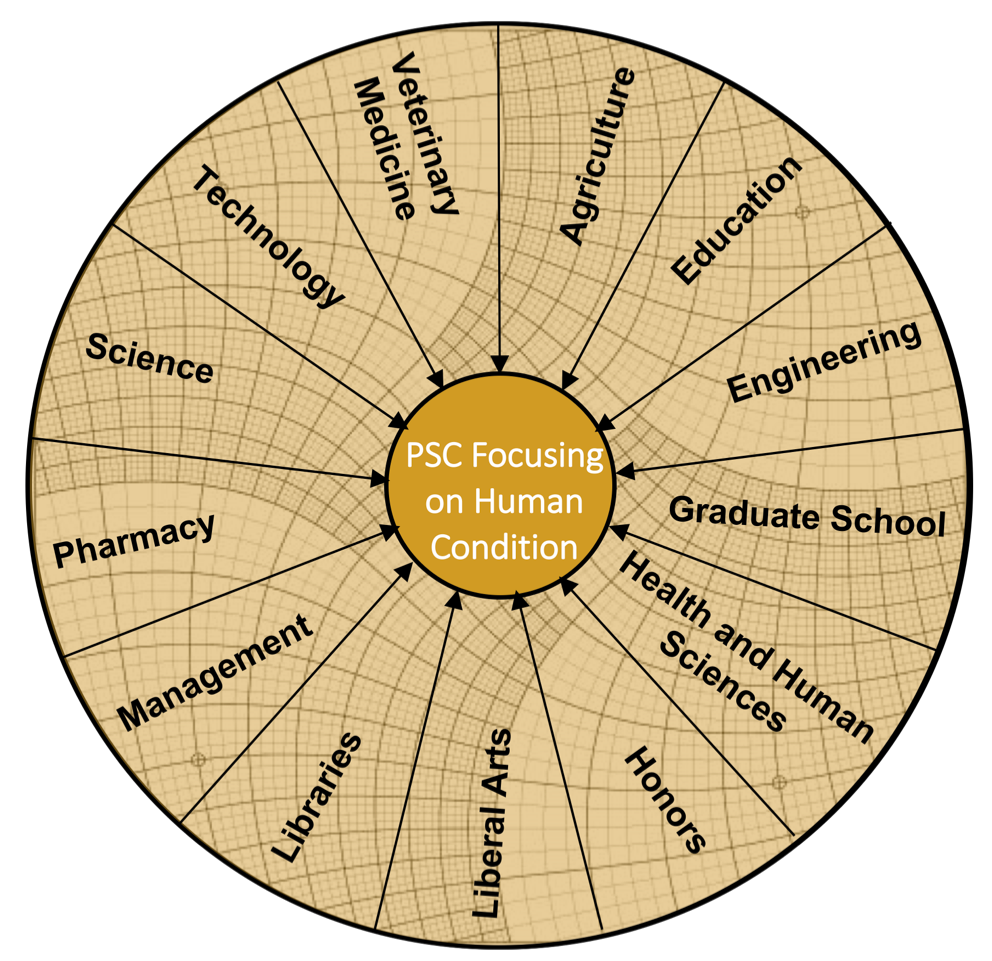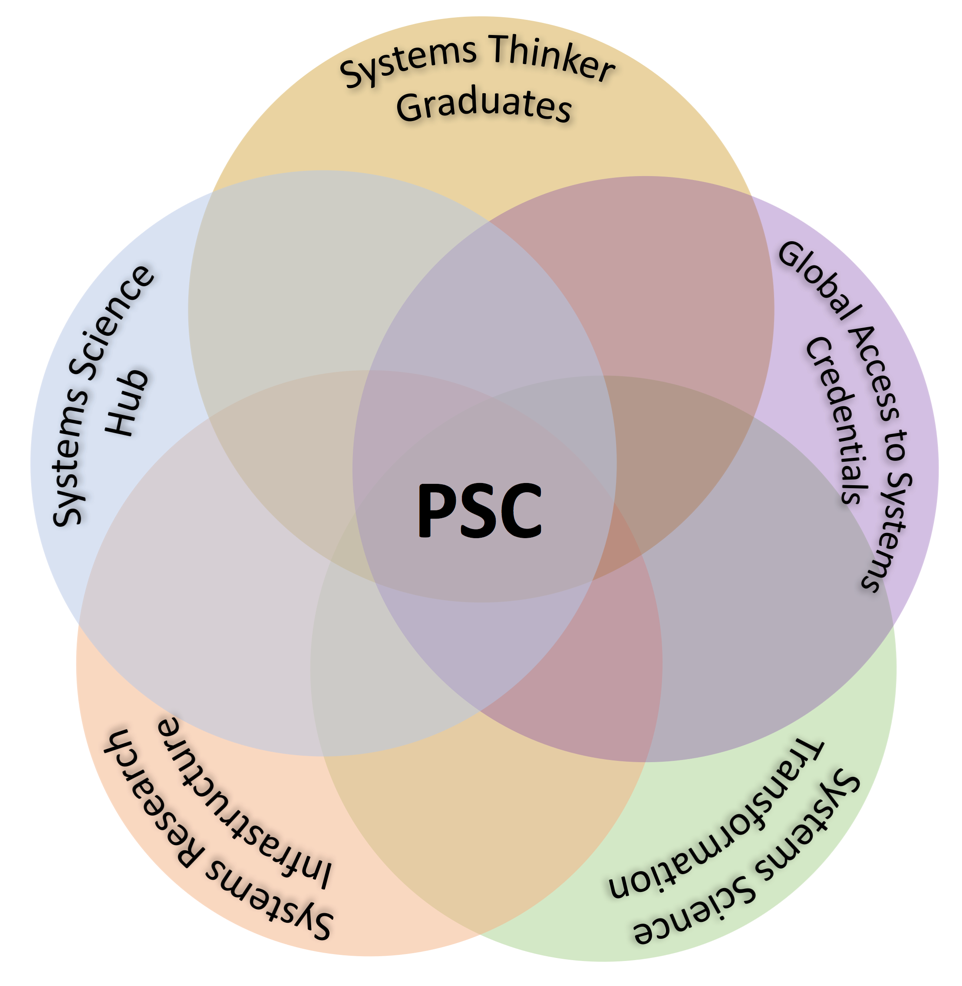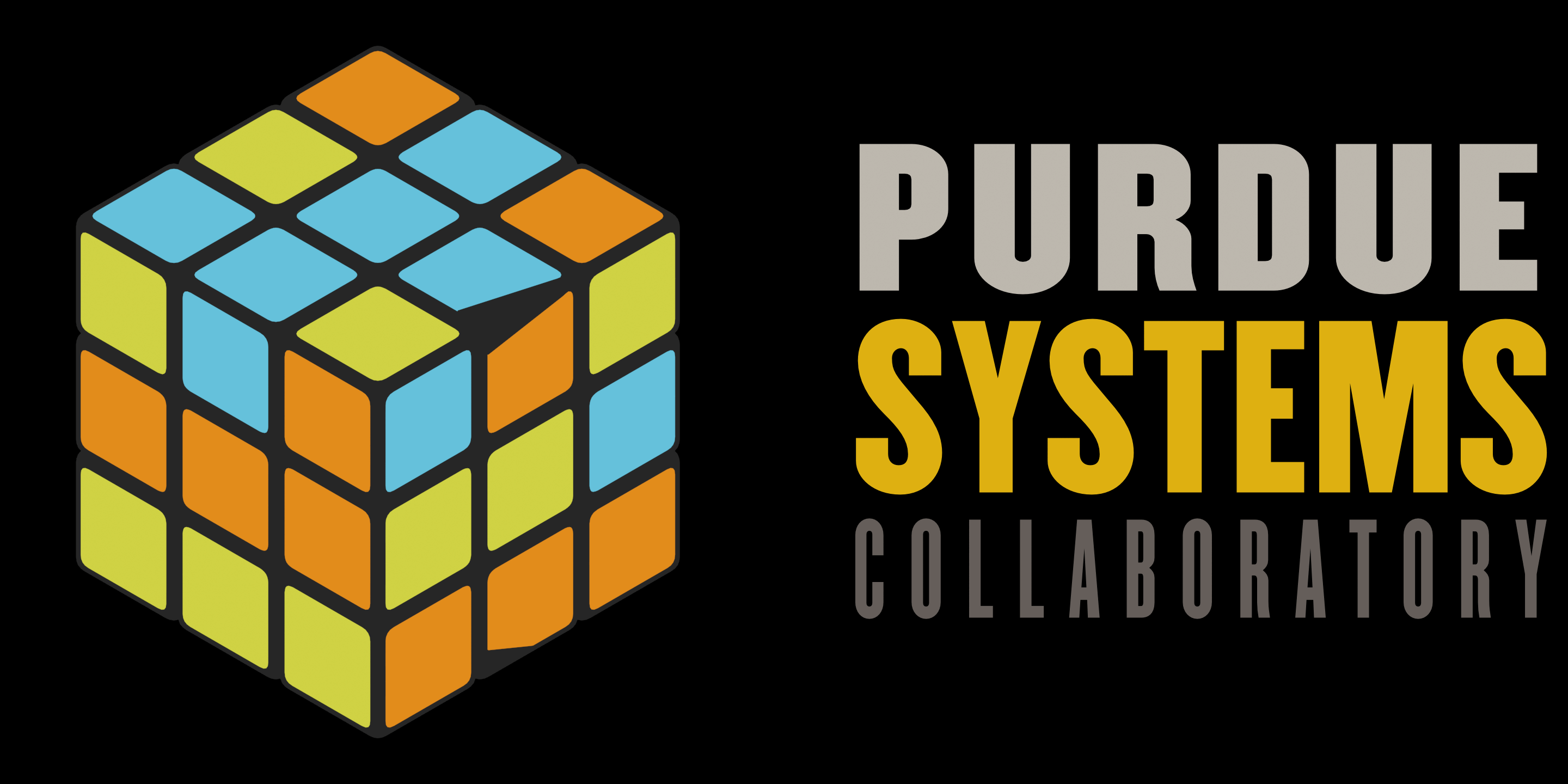About the Purdue Systems Collaboratory
Tackling complex challenges to move the world forward


Purdue Systems Collaboratory (PSC) was formed in 2015 to facilitate broad, transdisciplinary investigations of systems, their interactions with other diverse and assumed unrelated systems, and the aftereffects of major system disruptions. To date, we have developed several prototype multi-college projects, facilitated conversations about systems-related activities and interests with faculty across the University, and elicited enthusiastic support from all of Purdue’s deans.
PSC contributes foundational ‘Systems-Thinking’ principles to education, research, and practice through value-added collaborative models. Through PSC, Purdue is taking a holistic perspective in addressing the human factor of systems, because understanding this, is essential for addressing global as well as local issues. What’s most important about PSC is that it drives home the concept of the convergence of knowledge – across the physical sciences, social sciences, arts, life sciences – which sets us apart from other universities.
Underlying principles of the PSC
- Enabling convergence of knowledge across disciplines
- Focusing on improving the human condition
- Identifying foundational principles of systems, similar to natural laws of physical world
- Enabling every Purdue student, faculty and staff to have a system perspective
PSC’s five goals

I – Every Purdue Student is a Systems Thinker
- All Purdue students are exposed to systems thinking principles, tools and methods
- All Purdue students have access to systems specialization
II – The Go-to Place for Systems Credentials
- Easy access for non-Purdue students and continuing education professionals
- Targeted systems programs for companies and organizations
III – Transforming Systems Science
- Identifying “Newton’s Laws” of systems science
- Integration of science of systems across disciplines and domains
- High impact solutions for grand challenges facing society
IV – Infrastructure for Systems Research
- Infrastructure to enable integration of models across domains and scales
- Curation and on-demand access to data of different types and sources
- Analytics toolkit for diagnostics and prognostics for complex systems
V – Epicenter of Systems Science Activities
- Engaging with a broad group of faculty, staff, students and alumni
- Intellectual hub for international experts and thought-leaders
- Home of the “Davos” for systems
